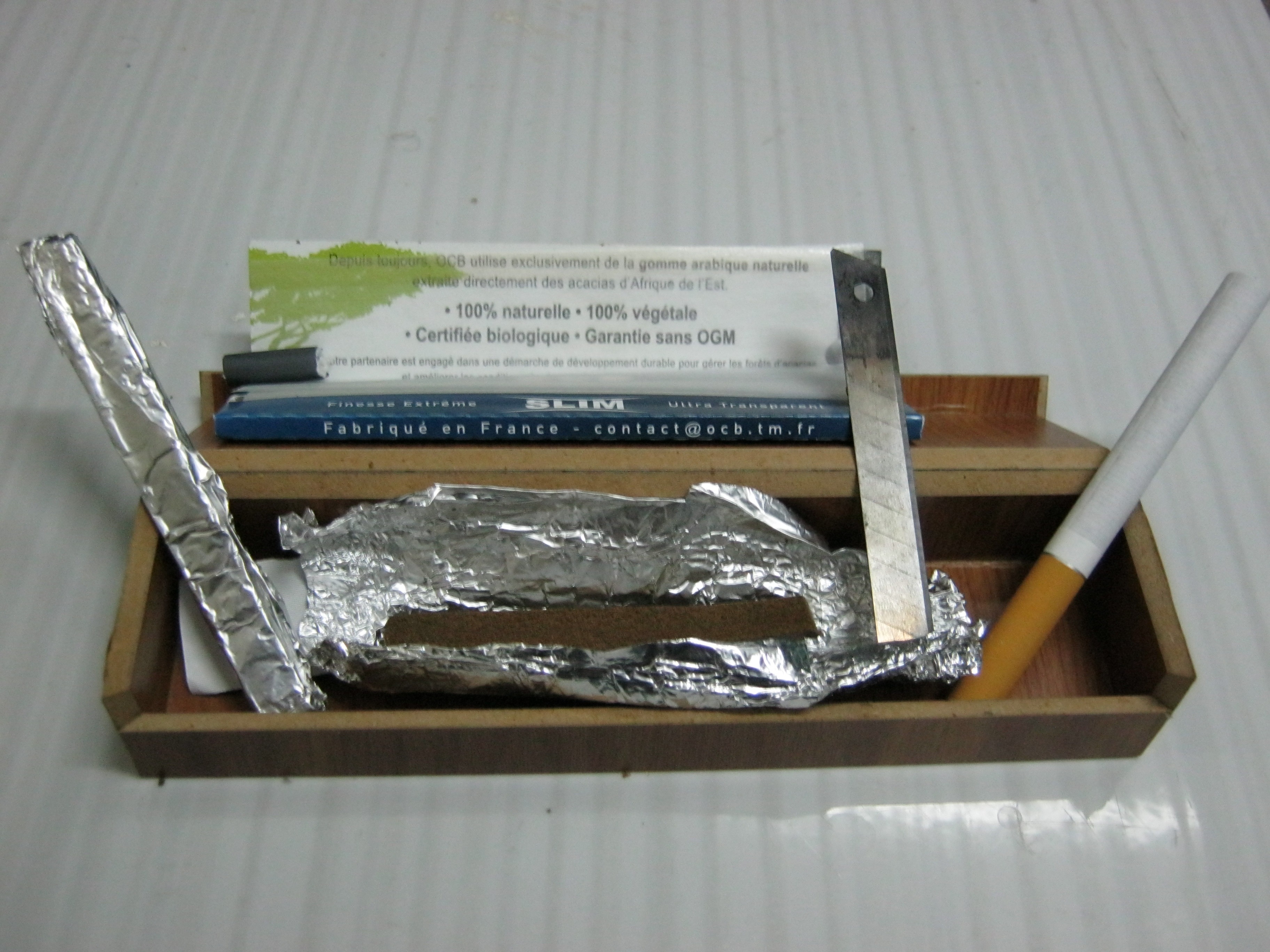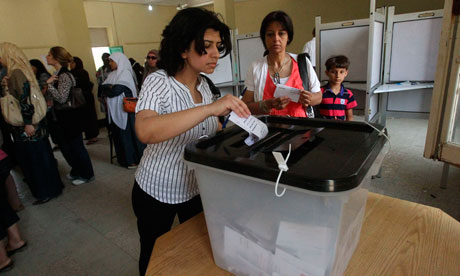
Combating drugs
In Egypt today drugs such as hashish and tramadol, a pharmaceutical painkiller, are widespread in all levels of society. This contradiction between current anti-drug policies and reality has less of an impact on the upper classes than it does on the less fortunate. It is the lower strata of society peddling drugs in and out of the country and facing the risks associated with this, while those in higher socio-economic brackets often benefit from high levels of impunity due to the overwhelming security bias towards the rich and well-connected.
Compounding the issue is that the general government’s strategy to tackling drug abuse in Egypt seems bent on cutting supply and hoping that with it, the demand vanishes. Possession or use of drugs, even considerably minor amounts, can result in lengthy prison sentences of up to 25 years and death for trafficking.
According to United Nations reports, Egypt is a crossroads for drug trade in the region due to its access to the Red Sea, the Mediterranean Sea, the Suez Canal, the Nile and land-routes from Africa to the Middle-East. Drugs often transit through Egypt, yet few are actually produced here due to the arid nature of the land.What Egypt does have in abundance however, is domestic consumption of marijuana and hashish.
Depending on the drug being smuggled in or out of Egypt, the quantity and the person smuggling the drug, there are countless ways to attempt smuggling. Most often drugs are concealed within hollow objects such as surf boards or concealed on the person. Larger hauls involve shipping lanes and cargo transportation disguised as other products and with the help of port workers along its route.
The 2008 United Nations Office on Drugs and Crime report on Egypt revealed that 121 hectares of poppy plantations had been eradicated, an insignificant amount compared to global opium production but the highest reported instance of crop eradication in Africa. In 2009, the total seizures of cannabis in Egypt stabilised at 1.4 metric tonnes. The UN estimated that in 2010, less than one percent of Egypt’s population used cocaine, and that heroin seizures in 2008 amounted to 211 kilograms, or two-thirds of total heroin seizures in Africa that year.
These seizures are significantly higher than the 1995-2006 period, indicating an increased offensive on drug trafficking. These statistics relating to Egypt are far from being as reliable or comprehensive as one would hope, due to the lack of statistical information being gathered by official sources in Egypt and the difficulties faced by the country over the past twenty months.
Islam and drugs
The Q’uran prohibits ‘wine’ (khamr) and calls it the work of the Devil. The teachings of Islam and differences in opinion regarding the validity of Hadiths lead to the branching out of differing schools of thought. The debate stems from the usage of the language; is wine meant to be symbolic or literal? Are the teachings guidelines, or rigid rules?
During Ramadan, Muslims must refrain from intoxicants as a rule. Very often, even more liberal Muslims will refrain from alcohol during Ramadan. Interestingly, many other drugs such as tobacco and tramadol are still consumed by a large minority, often because they feel the issue is debatable or situational.Within the Islamic Sufi branch, some worshippers use wine and cannabis because their teachings mention ‘intoxicating’ experiences. Again the issue becomes debatable as to whether or not the mentions made of such experiences in their teachings are a metaphor for spiritual ecstasy.
Culture
The UN estimates that in Africa, 64 percent of the demand for treatment in regards to drug abuse stems from cannabis use. The next in line are opioids at 19 percent, cocaine at 5percent, and Amphetamine Type Stimulants (ATS) at 5 percent each. The disproportionate difference between people seeking help for cannabis and opioids are an indicator of the specific drug culture found throughout Africa.
A trip to some of the poorer neighbourhoods in Cairo and conversations with Egyptians reveals the extent to which hashish can be found. On Pyramid Street, drug dealers can be seen outside bars approaching people with a look as casual as any. Taxi drivers are known to offer hash on occasions to their clients.
One poor neighbourhood in Giza is the Abu El-Hole area. Here the presence of hashish is widespread and the male population does not try to hide it. In order to maintain their anonymity, their names have been suppressed. “Here everyone smokes hashish,” the burly owner of a stable said. “My father and his father and his father, hashish is part of our culture.” The owner told stories of his father’s youth and his own; the narrative remained much the same over the decades. “We would take out the camels to the camps in the desert and spend the night smoking with friends. The police never bother us because they know they cannot stop us.”
The stories are much the same throughout the area; yet when it comes to women however, the issue becomes more complicated. Women are expected to show some comport when it comes to such things. Engaging in a conversation with women in Egypt, especially drug-related, is much more difficult than with men. Nevertheless, as another Egyptian man pointed out to me, “of course they smoke, but in secret.”
Summer Ahmed, a sixth year medical student in Mansoura agrees that the problem is much more prevalent and visible among men than women. “Every example of drug addiction we are given revolves around a male,” she said. “Seeking treatment as a woman is very hard, because they must then admit to having done all these things that are not lady-like.”
Rehabilitation
There are various rehabilitation centres in Cairo, most of which are privately run. Treatment in Narconon, a Scientology-associated rehab centre, gives patients access to jet skiing, volleyball, ping pong, king-sized beds in air-conditioned rooms with satellite television. In contrast, for the poor, treatment often involves direct but non-professional intervention in the form of community-based rehabilitation where drug addicts are thrown into a room and held there by force during withdrawal. Such treatment is questionable but indicative of the need to provide some sort of service.
In 2010, the Egyptian newspaper Al-Arabiya reported that an estimated eight percent of Egyptians use drugs, according to a government survey conducted in 2007.
The government itself provides basic and underfunded services within state-run hospitals and shares out-dated information with the public, leaving the task of treating Egypt’s forgotten souls in the hands of NGOs. The rich may very well have access to the information they may need to kick a habit, but the less-privileged of society are often forgotten.
Ahmed points out that hospitals are mainly confronted with overdose victims and often people who seek rehabilitation don’t know where to go. The principal treatment for drug abuse, she believes, lies in the larger hospitals which all have a toxicology department and staff on duty to deal with emergency cases but “these are reactionary and do little to address addiction and prevention” she said.
In March 2010, the Egyptian Initiative for Personal Rights (EIPR) published a document warning the Egyptian government that mishandling of the state-funded health programs needed to be addressed.
“Resources for the state-funded treatment system are supposed to be directed to the poorest citizens, those without health insurance coverage and most in need of care for expensive, catastrophic illnesses,” said Dr Alaa Ghannam, the director of EIPR’s Right to Health Program. “But mismanagement of the state-funded [drug] treatment program, neglect and the politicisation of resource allocation have created the existing crisis. As such, the system should not be abolished, but rather must be reformed to operate in accordance with specific criteria.”
Tackling the problem
Outlawing, rather than finding a solution to the problem, is a common response globally. It is an unfortunate approach, because outlawing a drug does not remove the problem but enhances the social stigmas associated with drug use and labels the principal victims of drug abuse as criminals. Egypt faces many socio-economic problems keeping the country from effectively identifying and rectifying the problem.
As the country slowly recovers from the instability brought by the revolution, Egyptians must look to solving enormous problems in fields such as education, income inequality, health, literacy, and work opportunity. Improving such issues can help indirectly reduce the impact of trafficking and drug abuse. The government must look to awareness and the dissemination of information as their primary tools, encompassed within a revolutionary public healthcare system that does not turn the victims of drug abuse and unfortunate socio-economic status into criminals.
Despite, or perhaps because of, the prevalence of recreational drug use in Egypt, especially with regards to hashish and marihuana, there seems to be a ‘blind-eye’ approach to the presence of the country’s underlying and more problematic drug culture. The question of drug abuse needs to be acknolwedged, however, before the root of the problem can be identified and dealt with.
The presence of diverse treatments accessible to all sectors of society indicates that it is not just a problem affecting one socio-economic class, and nor does financial security guarantee easy access to a personal problem as complex and stigmatised as drug dependency. Lack of information and research into the area are two factors which will prevent any moves forward.




